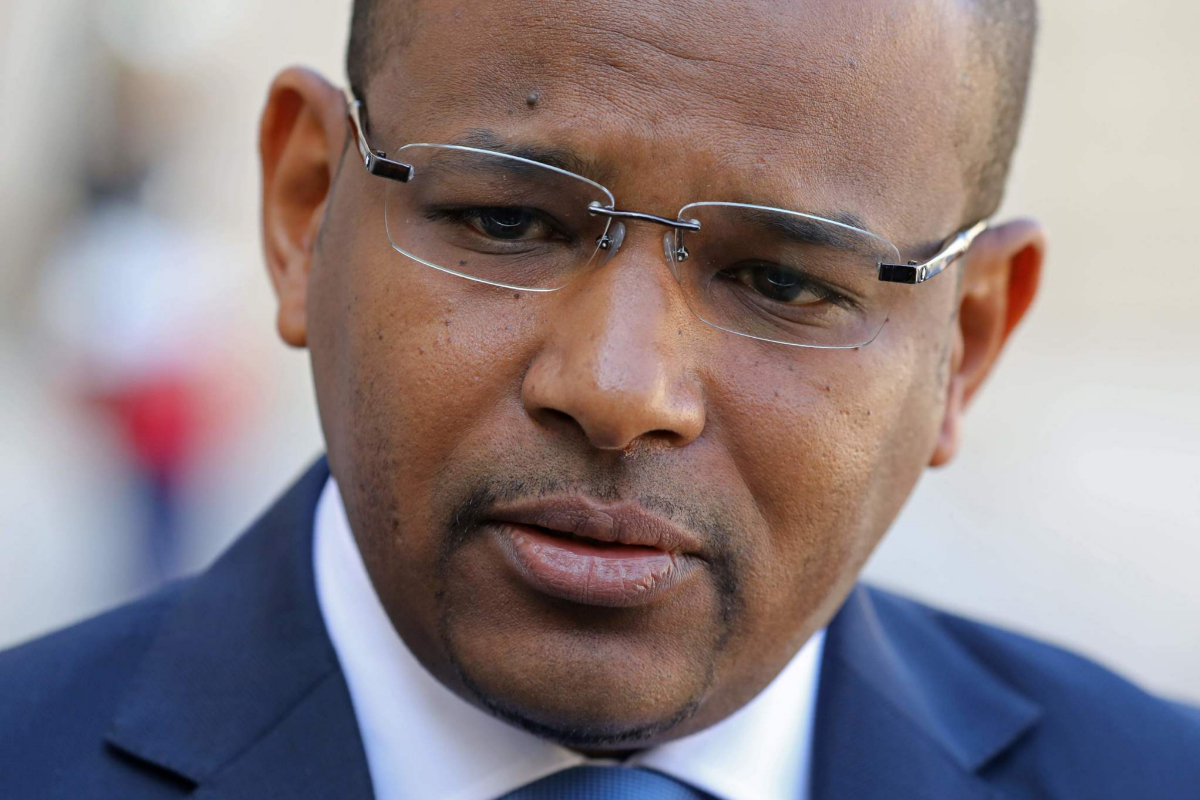Malian President Ibrahim Boubacar Keita and his prime minister, Boubou Cisse, were arrested this Tuesday afternoon by rebel soldiers, who fraternized with protesters who have been calling for the departure of the head of state and his government for months.
The president and prime minister "were taken by the mutinous military in armored vehicles to Kati", where the Sundiata Keita camp is located, about 15 kilometers from Bamako, where the rebellion began at the beginning of the day, said Boubou Doucoure, communication director of the government.
"We can tell them that the president and the prime minister are under our control. We detained them at their house" (at the residence of the head of state in Bamako), there was previously one of the leaders of the rebellion at the AFP agency.
The rebel military took control of the camp and the adjacent streets, before heading in convoy towards the center of the capital. In Bamako they were acclaimed by protesters gathered to demand the departure of the head of state in the vicinity of the Independence Square, the epicenter of the protests that have affected Mali for several months, before heading towards the residence of President Keita, according to the same source.
Before the announcement of the arrest of the president and his prime minister, West African countries , France and the United States had expressed concern and denounced any attempt to overthrow the government.
"I strongly condemn the arrest of President Ibrahim Boubacar Keita, (of) Prime Minister (Boubou Cisse) and (of) other members of the Malian government and call for their immediate release," said the President of the African Union Commission, Moussa Faki. Mahamat, on his Twitter account.
French President Emmanuel Macron "is following the situation carefully and condemns the ongoing rebellion attempt," it was announced in Paris.
The head of French diplomacy, Jean-Yves Le Drian, had previously stated that he condemned "most strongly" this "mutiny".
Shortly before their arrest by the military, Prime Minister Boubou Cissé asked them in a statement to "shut up their weapons", showing himself willing to initiate a "fraternal dialogue with them to dispel all misunderstandings."
"The observed mood swings translate some frustration that may have legitimate causes, " Cisse said, without giving further details on the reasons for the military's fury.
Bloody riots
Mali faces a serious socio-political crisis that worries the international community.
A heteroclite coalition of political opponents, religious leaders and members of civil society increase the demonstrations to demand the departure of President Keita, accused of mismanagement. Added to that is a difficult "social situation", according to trade union leader Sidibé Dedeu Ousman.
The Movement of June 5-Meeting of Patriotic Forces of Mali (M5-RFP), which is leading the protests, on Thursday rejected an interview with Keita, putting as a precondition the "end of the repression" against his militants.
On the weekend of July 10, a demonstration called by the June 5 Movement degenerated into three days of bloody riots.
In the same Kati camp, soldiers had rebelled on March 21, 2012 against the government's ineptitude to face a major offensive by the Tuareg rebels and the arrival of jihadists from neighboring countries, on that occasion they removed President Amadou Toumani Touré.
The coup d'état precipitated the fall of northern Mali into the hands of armed Islamist groups, which occupied the region for nine months before being expelled by an international military intervention launched by France in January 2013 and which is still ongoing.
The UN demands "immediate release"
The UN Secretary General, António Guterres, on Tuesday condemned the "military mutiny" in Mali and demanded the immediate and unconditional release of the country's president, Ibrahim Bubacar Keita, and other members of the Government.
In a statement, the United Nations expressed its concern over the latest events in Mali and called for the immediate establishment of "constitutional order and the rule of law."
Guterres, according to his spokesman, demands "the immediate and unconditional release of President Ibrahim Bubacar Keita and members of his cabinet", who are allegedly in the hands of the military who have staged a coup on Tuesday.
According to the criteria of The Trust Project
Know more- France
- Africa
- Paris
- Mali
- U.S
- Emmanuel macron
- international
FranceJean Castex, an omnipresent prime minister
NegotiationsThe six 'bodyguards' who watch the steps of Pedro Sánchez at the summit
Middle EastThe international community turns to Lebanon after the Beirut explosions, as protests continue and the government cracks
See links of interest
- News
- Programming
- Translator
- Calendar
- Horoscope
- Classification
- League calendar
- Films
- Topics
- Semifinal, live: Leipzig - PSG

